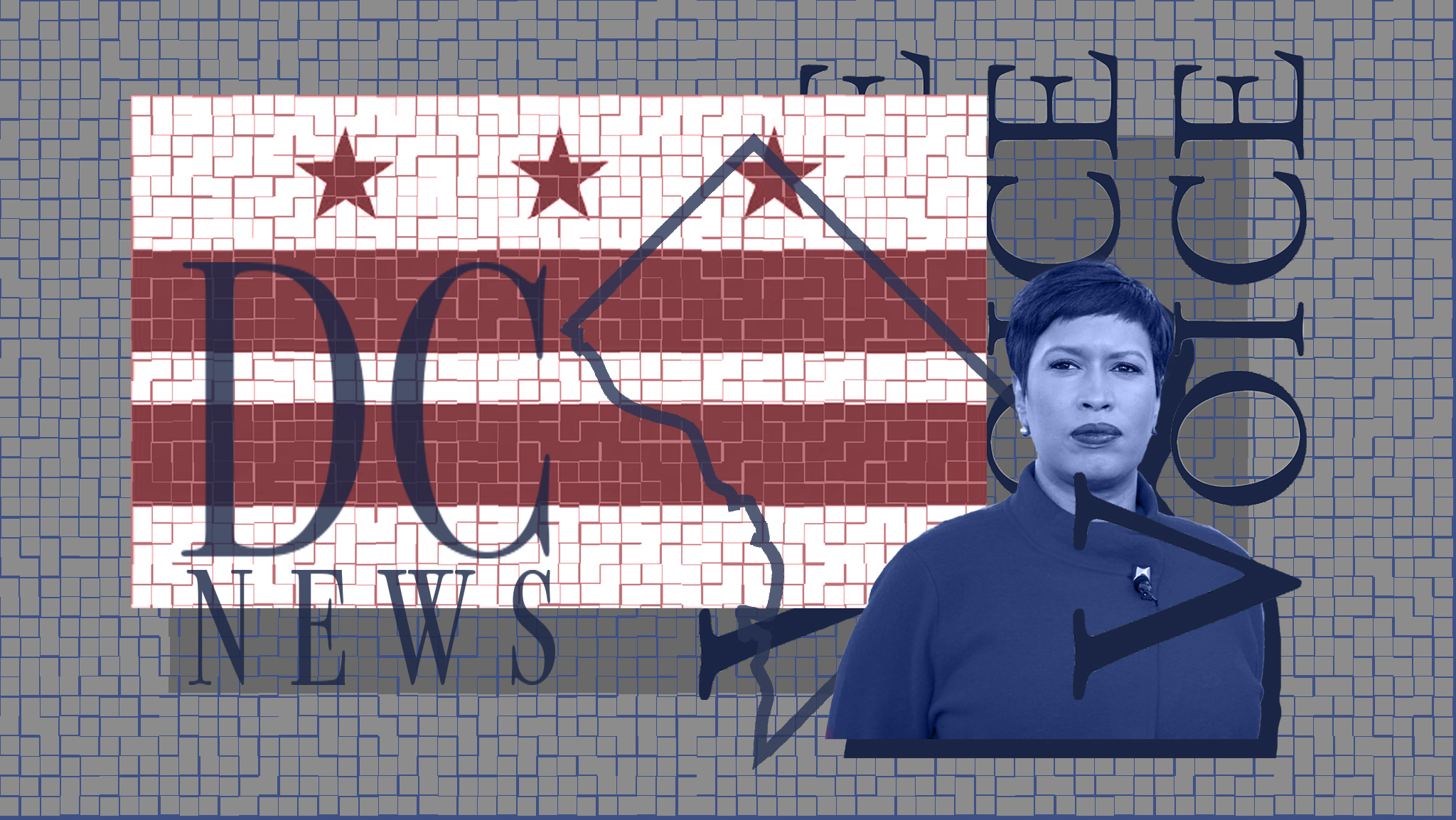The D.C. Council voted 12-1 to override Mayor Muriel Bowser’s veto of the District’s criminal code reform bill on Jan. 17. Known as the Revised Criminal Code Act of 2022 (RCCA), the bill aims to overhaul and modernize the District’s criminal code, which has only received rudimentary updates since its establishment in 1901. Bowser vetoed the bill on Jan. 4, citing concerns about its timeline, alleged lack of public input, and reduction of maximum sentences for robberies and gun-related offenses.
Bowser’s veto came after the Council unanimously passed the 450-page bill on Nov. 15, 2022. Drafted over the course of 16 years with extensive input from experts, community members, and advocacy groups, the bill includes provisions for streamlining the justice system, expanding access to jury trials for misdemeanors, decreasing maximum and minimum sentences, improving police accountability, and expanding eligibility for sealing or expunging records. Public reception of the bill has been overwhelmingly positive: a 2022 survey found that 83 percent of District voters supported the bill.
“The bill is the capstone to nearly two decades of work led by the Criminal Code Reform Commission, informed by a body of stakeholders including prosecutors, public defenders, criminal law experts,” Ward 6 Councilmember Charles Allen said during the Jan. 17 meeting, adding that stakeholders had urged the D.C. Council to move forward with the bill.
Founded over a decade ago, the Criminal Code Reform Commission (CCRC) has spearheaded the reform effort, which, according to advocates and experts, is long-overdue. The current criminal code includes ambiguities that impede the judicial process and encourage overly severe criminal sentences. For instance, the code’s unclear definition of kidnapping caused controversy in 2016 when the D.C. Court of Appeals upheld a kidnapping conviction in an assault case even though the defendant never attempted to kidnap anyone.
“Through our untenable interpretation of the kidnapping statute, this court has given the government license to tack a thirty-year offense onto virtually all assaultive acts,” Associate Judge Joshua Deahl wrote in his concurring opinion at the time. “We can expect even the most stalwart of innocent persons to plead guilty to those lesser offenses whenever the government dangles this thirty-year sword over their heads.”
Richard Schemechel, Executive Director of the CCRC, said that a major reason for the District code’s backwardness is its failure to adopt the main sections of the American Law Institute’s 1962 Model Penal Code (MPC). Following its popularization, the MPC became the basis for most states’ legal systems, but D.C. did not follow suit. As such, the District’s code fails to sufficiently differentiate the severity of crimes, leaving the courts to interpret many cases based on precedent alone. The code also imposes punitive maximum sentences that criminal justice reform advocates argue consistently fail to reduce crime.
“One or two high statutory maximums are authorized for all forms of defense, typically with maximums that usually far exceed what judges today apply,” Schemechel said in a Nov. testimony session before the CRCC. “Research now shows they do not deter crime effectively.”
Nonetheless, certain proposed reforms, especially those related to sentencing and police oversight, have provoked criticism from D.C. police and some prosecutors. D.C. Police Union Chairman Greggory Pemberton claimed in a press release that the bill’s reduction of sentences would “lead to violent crime rates exploding even more than they already have.”
Though violent crime in D.C. has doubled since 2013, the city has a lower crime rate than most similarly-sized metropolitan areas, and violent crime has decreased in the last two years.
Before the veto, Bowser and U.S. Attorney for D.C. Matthew Graves pushed to increase the bill’s penalties for gun-related offenses. A major factor in Bowser’s veto was the D.C. Council’s decision to reduce gun penalties.
“The Council has gone far beyond the modernization of our criminal laws to include controversial policy proposals,” Bowser wrote in a letter to D.C. Council Chairman Phil Mendelson in which she announced her intention to veto the bill. “I believe it is more important to get this opportunity right than to add policies and weaken penalties into what should be a bill that makes D.C. safer.”
However, councilmembers argued that the mayor’s decision was hasty and counterproductive during the Jan. 17 meeting. Brooke Pinto, Ward 2 Councilmember and Chairwoman of the D.C. Committee on Judiciary and Public Safety, expressed frustration over Bowser’s obstruction of the bill, despite sharing the mayor’s reservations about reductions in maximum sentencing. “There is simply too much good in this bill to abandon all that hard work, and without any backup plan from the mayor,” Pinto said.
Other councilmembers suggested that the veto was a political maneuver to discredit the Council and promote the mayor’s agenda for increased punishments. “There has been a lot of misinformation and fearmongering about this bill,” Ward 1 Councilmember Brianne Nadeau said. “The mayor knows that this council would override the veto. This is theater.”
“I have to say this is irresponsible for the mayor to characterize this as, quote, ‘This bill doesn’t make us safer,’” D.C. Council Chairman Phil Mendelson said, adding that conservatives in Congress would use the mayor’s veto and rhetoric as ammunition to oppose the bill.
With the veto overruled, the bill goes to a Congressional review period, where Republican lawmakers have vowed to block the reform. Although the bill that House Republicans introduced to block the code would have to pass a Democratic Senate and obtain a signature from President Biden, Republicans hope to use the attention to stoke controversy.
Even so, the councilmembers are determined to see the reforms through to 2025, when they will take effect.
“A veto is defense of the status quo,” Allen said. “I’m grateful we’re forward-looking.”





